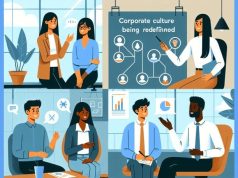In a world that is increasingly digitized, where artificial intelligence, big data, and cloud computing are more than just buzzwords, the success of a business hinges on the technological proficiency of its employees. Gone are the days when tech skills were confined to IT departments. Today’s workplace demands that every professional – from the creative marketer to the financial analyst – be equipped with a certain level of digital expertise.
As we navigate through this digital era, it is imperative to recognize that technological aptitude is not just an asset but a necessity. This is particularly true in New York, a bustling hub for industries ranging from finance to fashion, all of which are being reshaped by technology. Non-tech professionals who fail to adapt are not only risking their personal job security but are also potentially hindering the productivity and innovation of their teams.
So, what are the key technology skills that non-tech professionals need to thrive in today’s workforce? These include, but are not limited to:
1. Data Literacy: The ability to read, analyze, and derive insights from data. With companies relying increasingly on data to make informed decisions, understanding the basics of data analysis and visualization is vital.
2. Digital Communication Tools: Proficiency in collaboration platforms (like Slack, Microsoft Teams, or Zoom) and project management tools ensures that work processes remain smooth and efficient, particularly with the rise of remote work.
3. Cybersecurity Awareness: As cyber threats loom larger, understanding the fundamentals of protecting sensitive information has become crucial for all employees.
4. Social Media Savvy: In an age where brand presence on social media can make or break a company, knowing how to navigate these platforms is invaluable.
5. Basic Coding Knowledge: While not everyone needs to be a developer, an understanding of the basics of how software and websites work can be incredibly useful.
Failing to develop these skills can lead to a growing digital divide in the workplace, impacting communication, productivity, and even the employability of non-tech professionals.
To address this issue, companies should foster a culture of continuous learning. This can be achieved through regular training programs, access to online courses, and encouraging a mindset where upskilling is a collective responsibility. In New York’s competitive job market, companies that invest in their employees’ digital education are more likely to retain top talent and stay ahead of the curve.
For non-tech professionals seeking to boost their digital skills, the journey begins with a commitment to learning and a proactive approach to personal and professional development. Start with online courses in data literacy or digital communication tools, join webinars, and participate in tech workshops. Moreover, leverage your network in New York’s diverse professional landscape to learn from peers and stay abreast of technological trends.
In conclusion, as the lines between tech and non-tech roles continue to blur, it’s clear that digital literacy is no longer optional. By embracing a commitment to continuous learning and digital upskilling, non-tech professionals can secure their place in the modern workforce and contribute to a more innovative, efficient, and secure workplace.
Remember, in the digital age, your skillset is your currency. Invest in it wisely.

















![From TAOLabs: A New, Simplified Way to Learn in the Age of Chaos [30m60h90d] From TAOLabs: A New, Simplified Way to Learn in the Age of Chaos](https://theworktimes.com/wp-content/uploads/2025/05/ChatGPT-Image-May-13-2025-01_11_22-AM-238x178.png)










